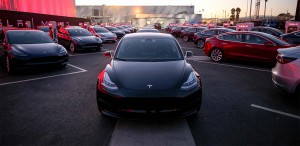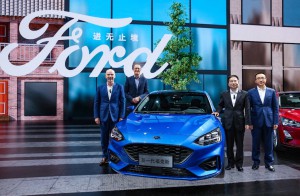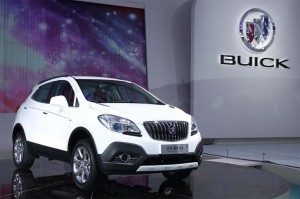Foreign automakers have long complained about the hefty tariffs levied on vehicles exported to China, but Chinese President Xi Jinping on Tuesday said his government plans to “significantly lower” duties this year.
The move comes at a time when tensions between the U.S. and China have built to the point where many observers have been fearing the start of a potentially devastating trade war. Just Monday, U.S. President Donald Trump complained in a tweet about “STUPID TRADE” policies that allowed the Chinese to levy a 25% tariff on imported vehicles, compared to the 2.5% duties imposed by the U.S. on most foreign-made vehicles.
The Chinese president’s comments leave a lot of questions to be answered before it can be clear what impact the proposed move will have on foreign automakers, but at least one U.S.-based manufacturer is pleased, Tesla CEO Elon Musk quickly tweeting, “This is a very important action by China. Avoiding a trade war will benefit all countries.”
(BMW has big news coming at this month’s Beijing Motor Show. Click Here for more.)
Tesla has marked China as a potentially lucrative growth opportunity but has so far gained relatively little ground there, despite the push by Chinese regulators to rapidly increase sales of zero-emissions vehicles, such as the automaker’s new Model 3 and older Models S and X. Hefty tariffs have been cited as a key reason for its slow expansion there.
The California-based carmaker’s push has been further constrained by its inability to line up the local partner required by Chinese law in order to set up a factory in that booming Asian market.
Most other foreign manufacturers, such as General Motors, Ford Motor Co. and Volkswagen AG, have lined up local alliances and now operate extensive Chinese manufacturing networks. It is unclear whether any of those brands will now seek to also increase exports to China. Lower tariffs could allow them to ship over low-volume models for which they couldn’t justify setting up a Chinese plant.
The timing of Xi’s announcement coincides not only with the push for trade concessions by Pres. Trump but also with the expansion of automotive exports from China targeting the U.S., Europe and other foreign market.
In recent years, most auto plants in China have been operating at or above rated capacity seeking to supply that fast-growing market. Total sales there neared 29 million in 2017, but that was up only 3% from the year before, marking the slowest pace of growth since the Chinese automotive boom began around the turn of the millennium. That has spurred both local and foreign-based manufacturers to start seeking out export opportunities.
Volvo already ships a small number of niche products to the U.S. from Guangzhou, and General Motors sources the Buick Envision from a plant near Shanghai. Ford, meanwhile, plans to use a Chinese plant as the new base for production of its next-generation Focus model. The compact line will be moved out of a Michigan factory to make room for two new light truck models, the Ford Bronco SUV and Ranger pickup.
(Click Here to check out Ford’s next-gen Focus.)
Domestic Chinese brands have been promising to set up an export base in the U.S. for more than a decade, but have repeatedly delayed those plans. Guangzhou-based GAC could be the first to arrive, the automaker currently lining up a U.S. dealer network. Others, such as Geely, the parent of Volvo, are expected to follow.
Xi appeared to sidestep the potential for a trade war with the U.S. in commenting on automotive tariffs. He also avoided laying out a specific timetable. A rollback has actually been on the table for some time, the Chinese government last November saying it would ease tariffs “gradually and properly.”
But Trump has been ratcheting up pressure, administration officials noting that China had a $350 billion trade surplus with the U.S. last year, according to government data.
Nonetheless, “linking China’s strategic choice to the current China-US trade frictions” was a “baseless interpretation,” declared the People’s Daily, the ruling Communist Party’s official publication, in a Tuesday commentary “These measures are based on our consistent policy and stance, our own development and our own pace.”
Ironically, the U.S. has also come under pressure over the years for its own automotive tariffs. While most vehicles are subject to duties of only 2.5%, that jumps to 25% on foreign-made pickups. That’s a holdover from a long-ago trade dispute with Europe over American poultry and has come to be known as the “chicken tax.”
It is one reason why many foreign-based manufacturers such as Volkswagen have decided not to enter the otherwise lucrative U.S. pickup market.
(GM set to reveal Chinese EV concept despite trade war threat. Click Here for more.)



